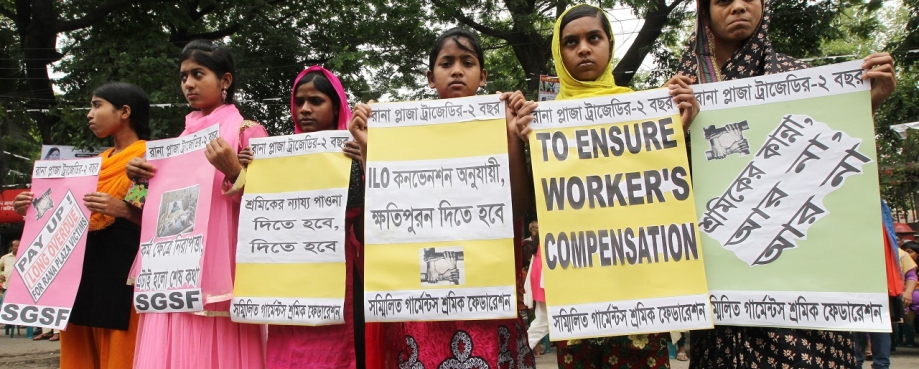
24 April 2024 is the 11th anniversary of the collapse of Rana Plaza in Dhaka, Bangladesh, which brought about the deaths of 1,321 factory workers, mostly women, and injured over 2,500 more.
The disaster was attributed to several interrelated issues, including a lack of occupational health and safety (OHS) precautions and social dialogue in Bangladesh’s readymade garment (RMG) sector.
We reflected last year, a decade on, about the lessons learned following the disaster, all of which still stand.
Lesson one: Workplace health and safety must be prioritised and upheld.
Lesson two: The right to freedom of association and collective bargaining must be respected and protected.
Lesson three: Living wages must be paid.
Lesson four: Access to remedy and compensation for harm caused must be provided.
The end of 2023 proved particularly fraught for Bangladesh, as the minimum wage setting process coincided with the run up to the national election, two significant events for workers across the country. These events resulted in arrests, ongoing detentions, pending court cases, and actions taken against workers in Bangladesh following demonstrations during this period.
We continue to ask the question, 'Has the garment industry learned its lessons, or is another tragedy still a real risk?'
Abil Amin - ETI Bangladesh Country Manager
Progress continues to be made to make factories safer, however the repression of the right to freedom of association & the recent criminal charges against workers in Bangladesh is evidence of the continued harsh reality faced by workers.
Read our full statement of response.
Looking ahead
While some progress has been made in the decade since Rana Plaza, more remains to be done if stakeholders across the supply chain are to learn from this tragedy.
Effective due diligence, living wages and social dialogue require continuous work if human rights risks in any sector are to be effectively identified, mitigated and redressed.
For businesses to fulfil their commitments appropriate due diligence processes must be followed as set out in the recent Corporate Sustainability Due Diligence Directive.
Visit the ETI Bangladesh website for more on our work protecting workers’ rights across the country.
